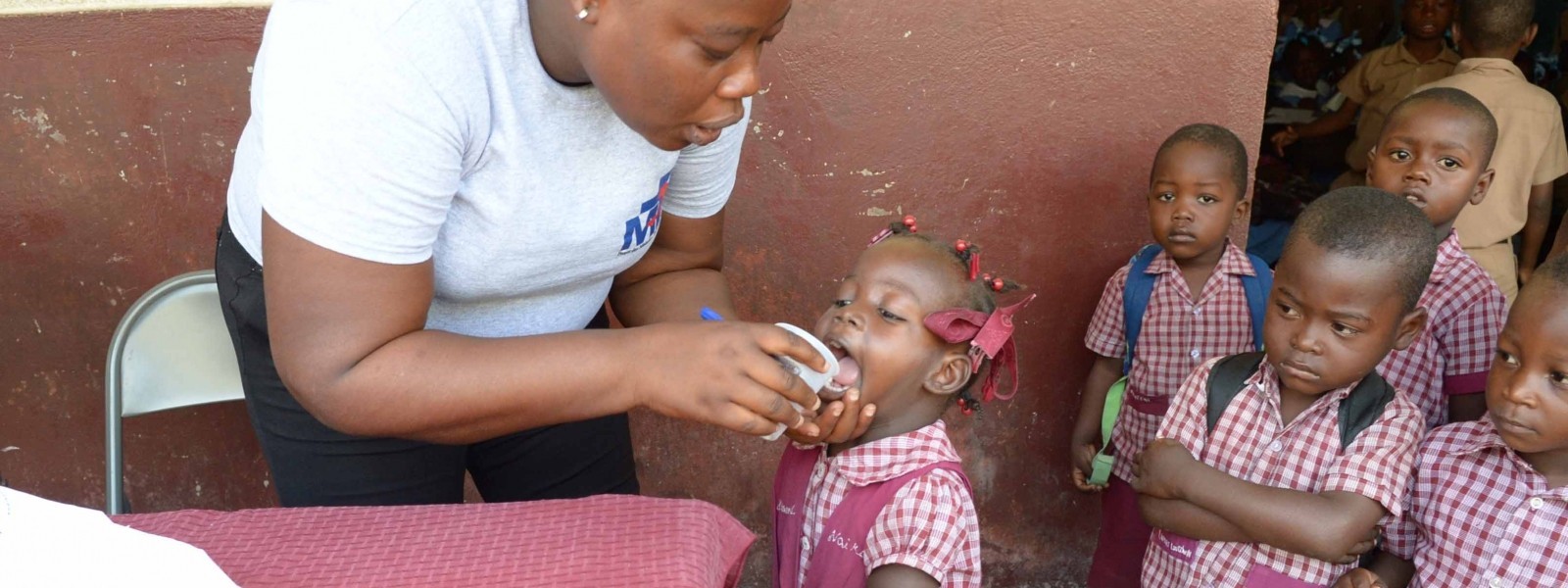IMA World Health is dedicated to preventing and treating diseases that primarily affect poor and vulnerable people. IMA targets a variety of diseases through specialized disease control projects, as well as through integrated health systems strengthening and service delivery programs.
CORONAVIRUS (COVID-19)
Building on our experience with Ebola, and in anticipation of local or widespread transmission of the coronavirus on the African continent, IMA World Health is seeking to improve preparedness of non-governmental Christian Health Associations and other faith-based health care networks in Sub-Saharan Africa for COVID-19 outbreak response. IMA is working through a collaborative partnership with the Africa Christian Health Associations Platform (ACHAP) -- a membership organization of 43 CHAs in 32 countries in Africa. Learn more.
NEGLECTED TROPICAL DISEASES
As a global leader in NTD control and elimination, IMA specializes in the control and elimination of five NTDs—lymphatic filariasis, onchocerciasis (known as River Blindness), trachoma, schistosomiasis and soil-transmitted helminthes or worms. Our primary work involves managing mass drug administration in Haiti, Tanzania and the Democratic Republic of Congo. IMA uses a combination of evidenced-based strategies to map and scale-up NTD control in partnership with governments and civil society partners, and through funding from the United States government and other donors. IMA also provides morbidity management interventions to manage the debilitating symptoms of these diseases, such as surgery to relieve pain and prevent blindness for those suffering from trachoma. Learn more about our projects.
EBOLA
IMA World Health’s work on the front lines of strengthening health care systems often brings us in contact with new infectious disease outbreaks. One such disease is Ebola, a deadly virus with a case fatality rate of up to 90 percent. It is highly contagious and spreads easily and rapidly through human contact. IMA’s experience in containing Ebola outbreaks began in 1995 in the Democratic Republic of Congo. Our work has involved providing personal protective equipment and other supplies, raising disease awareness, supporting health facility prevention and control measures and more. Learn more.
NON-COMMUNICABLE DISEASES
Through longstanding relationships with local hospitals in Tanzania, IMA supports the diagnosis and treatment of a set of non-communicable diseases that often go undiagnosed and untreated in communities that lack resources that are common in developed countries. IMA trains health workers on screening and treatment methods as well as provides supplies to support low-cost screening and treatment for cervical cancer, the leading cause of cancer death in Tanzania. IMA has also supported the diagnosis and treatment of Burkitt’s Lymphoma, an aggressive but treatable childhood cancer, for over a decade, primarily by training health workers to promote early detection and by providing the essential chemotherapy drugs. Learn more.
HIV AND AIDS
Since 2004, IMA World Health has implemented and strengthened a full range of community- and facility-based interventions to prevent and treat HIV and AIDS in sub-Saharan Africa. One of our core approaches is strengthening the capacity of local health facilities to provide testing, care and treatment. This includes training health workers and supporting sites to improve and scale up Prevention of Mother-to-Child Transmission, HIV testing and counseling, antiretroviral therapy and care and support services. Learn more about our projects.
MALARIA
IMA works to prevent and treat malaria in some of the most insecure and challenging areas of South Sudan and the Democratic Republic of Congo. Here, IMA ensures that pregnant women access intermittent preventive therapy, or IPTp, to prevent malaria during pregnancy and that they and their young children sleep under long-lasting insecticide-treated nets, or LLINs. IMA uses both proven and innovative solutions to distribute and track LLIN installation to ensure adequate coverage and usage. Learn more about our projects.


